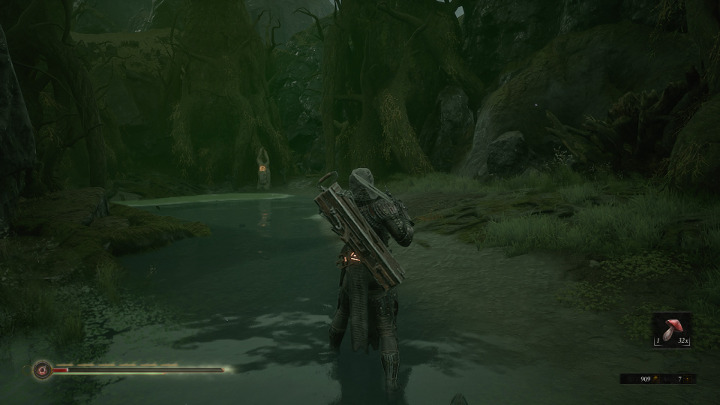
Ever since the “Soulslike” graduated from a series of envious Dark Souls copycats into a full-fledged genre, we’ve seen countless attempts to ape the formula unsuccessfully. The ones that did it best, for the most part, have been either made by From Software (the very creators of Dark Souls) or have found their own unique spin on the formula (such as Hollow Knight).
The temptation, I think, is to just make a difficult game with its own version of the “earn souls from enemies and spend them at campfires” gameplay loop of Dark Souls, without really getting to the… well, soul of Souls. But the magic of Dark Souls isn’t in its difficulty. There are folks who will insist upon the hardness of Souls, but they don’t really get it.
Dark Souls has a very specific type of magic to it that is actually quite difficult to replicate. Yet somehow, Mortal Shell, a game designed by a tiny team of fifteen people, has managed to get nearly every aspect of the Dark Souls formula right without repeating its biggest missteps.
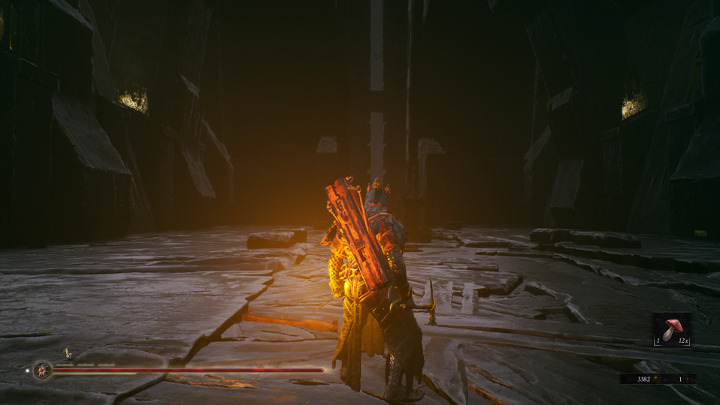
For one, Mortal Shell nails the atmosphere. The game world is drenched in muck and grime and gloom, with overcast skies and swampland as far as the eye can see. Yet it’s not overbearing or oppressive. The hovering mist and croaking frogs sort of lull you into a dreamlike trance as you go carefully squishing your way through the swampland of Fallgrim. While there’s a dreariness to this atmosphere, there’s also a surreal quality to all of it that makes that gloom feel sort of welcoming.
Part of that is the NPCs. There’s a talking frog named Gorf, a bandit named Baghead who invites you to play lute and drink moonshine with him, and a giant birdlike creature in a mask that seems like it might have crawled out of Jim Henson’s The Dark Crystal.
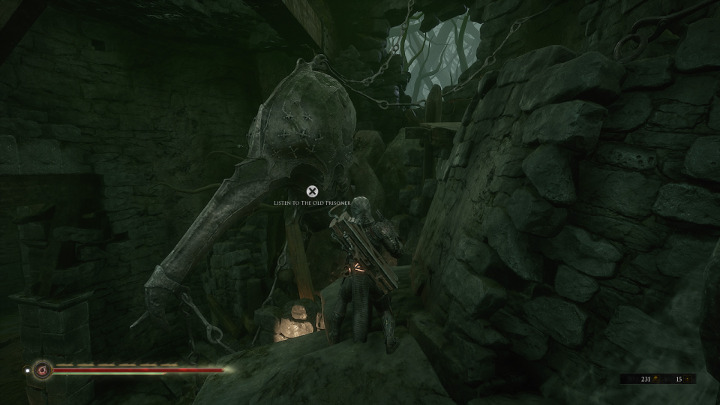
Remember that even though Dark Souls presents sort of a grimdark, demonic fantasy world, it’s not afraid to drop in the occasional talking animal now and again. If you’re going to fill a world with nastiness, you must balance that against a great deal of charm. Mortal Shell understands this while too many of its competitors fail to.
And Mortal Shell knows how to carefully hand out its lore, resisting the temptation to overindulge and deal out long-winded exposition dumps. The game gives you slightly less than you’ll ever need to know, leaving players to work out the details for themselves. Bloodborne was especially good at this, and Mortal Shell walks that fine balance between overly vague and detailed. I played the game to the end and started poking around in New Game+, and I’m still putting the pieces together myself.
Combat has always been the bread and butter of a Soulslike, and Mortal Shell excels here too. Every swing of your sword feels weighty and every strike feels meaty. There’s a tension between offense and defense that makes every encounter feel satisfying, and there’s a surprising amount of variety in enemy timing that will keep you on your toes even late into the game.
Of course, Mortal Shell does offer some key differences from the Souls games in this area. Most immediately is the Harden mechanic, which allows you to turn into solid stone for a few seconds to mitigate incoming damage. Once you get the hang of it and it becomes a regular part of your combat rhythm, you’ll realize this is probably the game’s best innovation. It’s immensely satisfying to approach a seven-foot-tall armored enemy and Harden just as the first blow comes, mitigating all of the damage and setting yourself up for a swift counterattack.
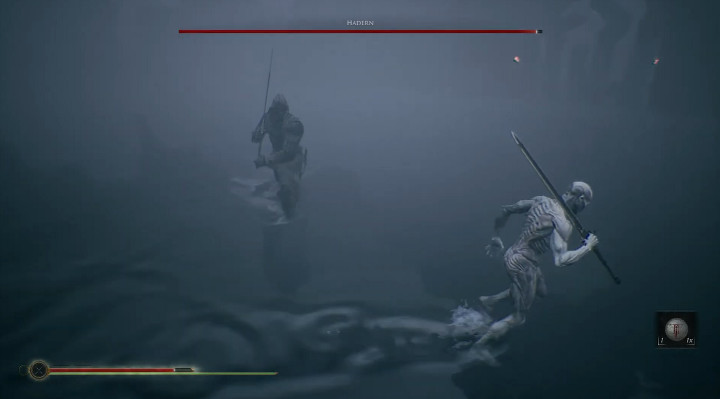
On top of that, you’ll play as a gaunt, skeletal figure with very little health, but you can inhabit the “Shells” of fallen warriors and acquire their stats. There are four Shells to find in the game world, and each comes with its own benefits and drawbacks. Eredrim, for example, has a humongous health bar with very little stamina, while Tiel (the game’s version of a rogue class) has silly amounts of stamina but possesses the health bar of a damp piece of tissue paper. On top of that, each Shell has its own backstory, told in small pieces as you unlock upgrades.
You’ll definitely want to experiment with all four shells because they’re fun to play in different ways. Harros will likely be the first Shell you pick up (he’s located really close to where you enter Fallgrim), and he’s a well-rounded character who’s good for practicing the basic combat tools with. Solomon has the most Resolve out of the four, which means he’s your guy if you want to take full advantage of the parry system and special attacks. Tiel is light and nimble and disappears in a cloud of smoke when you dodge roll. And Eredrim is just a beefy dude who can absorb damage like a tank.
I should probably point out here that once you’ve gotten a good feel for all four Shells, you’re almost certainly going to stick with Eredrim, at least for dungeons. He’s just stupidly overpowered, with one skill in particular that gives you a kill counter — every consecutive kill increases your damage output, and it’s only ever reset if you get knocked out of your Shell. It’s not difficult to get this counter up into the hundreds, which allows you to make mincemeat of any enemy in short order. This one skill is overpowered to the point of being broken. Perhaps Cold Symmetry will patch in a kill counter cap — that’s right, there is no cap, or at least not that I’ve found yet — so if you want to exploit this absurdly overpowered skill, you should do so before a potential nerf comes.
I have to admit, it’s actually really, really fun to slash your way through the game world once you’ve stacked hundreds of kills, but I can’t imagine this will be left alone in future updates. It’s just too powerful, and it discourages going back to the other Shells.
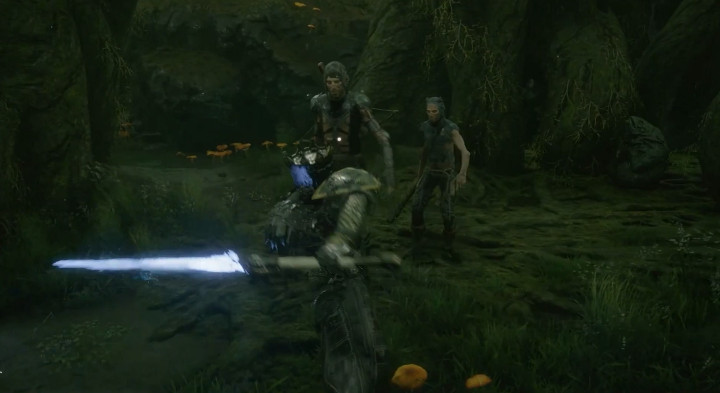
Mortal Shell is a short game, surely, but it costs half the price of a triple-A game at launch and it doesn’t waste any time. There’s a main hub, Fallgrim, with three dungeons scattered across it. Beyond that is one final boss before the credits roll. For a budget-priced game, though, I’m fine with this length.
More importantly, though, Mortal Shell feels like a Souls game. It has the atmosphere, the hidden scraps of lore, and the timing-based heavy combat style. It also features the core mechanic of collecting souls (called tar here) and spending those on upgrades. And I’ve forgotten to mention it earlier but the boss design is incredible.
Mortal Shell is easier and shorter than Dark Souls, but it has the Souls feel, which is an incredible achievement from such a small team. If you’re looking for something to scratch that Dark Souls itch, Mortal Shell is one of your best options.